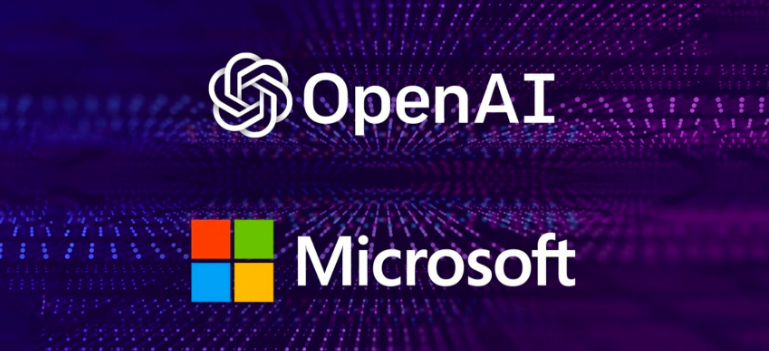🎓 Introduction
The tech industry, renowned for its innovative prowess, stands as a paradigm of the positive-sum game. This concept, rooted in game theory, describes scenarios where the total of gains exceeds losses, allowing all players to win. Understanding this perspective is crucial in realizing why tech giants are not just massive in value but also pivotal in shaping a world where everyone benefits.
🌟 Top 10 Trillion-Dollar Tech Titans (as of November 2023):

- Apple - $2.98 trillion 🍏
- Microsoft - $2.81 trillion 💻
- Alphabet (GOOG) - $1.73 trillion 🅖
- Alphabet (GOOGL) - $1.71 trillion 🅖
- Amazon - $1.51 trillion 🛒
- NVIDIA - $1.25 trillion 🖥️
- Meta Platforms - $873.68 billion 👓
- Berkshire Hathaway - $791.08 billion 💼
- Tesla - $748.95 billion 🚗
- Eli Lilly and Company - $567.51 billion 🔬
🔄 The Essence of a Positive-Sum Game
Imagine you're playing a game with your friends. In some games, like chess, for one person to win, the other must lose. This is like a zero-sum game. But what if I told you there's another kind of game where everyone playing can win together? That's a positive-sum game!

🎲 Understanding Positive-Sum Games

In a positive-sum game, the whole idea is to make the pie bigger for everyone, not just take a bigger piece of the same pie. Think of it like baking a giant cake together. If you all work as a team, you end up with a much bigger cake than any of you could have made alone. Then, everyone gets a larger slice!
💡 How Does This Work in Tech?
The tech industry operates much like an expansive cake-baking endeavor. Rather than vying for the same set of customers or profit margins, these companies channel their efforts into crafting innovative offerings – from advanced smartphones and intelligent software to immersive video games. This pursuit of innovation is key.

In doing so, tech companies effectively enlarge the 'technology pie.' It's not merely about gaining a larger slice of the existing market, akin to a zero-sum game. The real focus is on pioneering new technologies, products, and services. Such innovation doesn't just carve out a bigger market. It forges entirely new territories, paving the way for a plethora of opportunities and benefits for a wider audience. This approach doesn't just mean more cutting-edge gadgets for consumers. It also generates more employment opportunities and fosters a vibrant ecosystem where everyone can thrive.
🌍 The Broader Impact
Let's take an everyday example. Imagine a tech company develops a new, more efficient way to recycle plastic. This innovation isn't just good for the company but also for the environment, consumers, and other businesses. In this way, the company's innovation adds value to the world, making the situation better for everyone – that's the essence of a positive-sum game.

By understanding positive-sum games from first principles, we see how the tech industry's drive for innovation is about more than just business success. It's about creating a cycle of continuous improvement that benefits us all.
🌐 Cases Study:
OpenAI's Positive-Sum Approach
Recently, OpenAI, under the leadership of Sam Altman, has highlighted the tech industry's commitment to positive-sum outcomes. With statements like “we have more unity and commitment and focus than ever before... one team, one mission,” OpenAI exemplifies how collaboration and innovation can lead to mutual benefits. This spirit is mirrored across the industry, showing how tech giants contribute more broadly to societal advancement.

🍏 Apple's Positive-Sum Impact
Apple has significantly contributed to the tech ecosystem, especially through its App Store. Since its launch in 2008, Apple's App Store has paid out over $320 billion to developers globally, a substantial increase from $200 billion the previous year. This growth demonstrates Apple's role in fostering a vibrant ecosystem where developers can thrive, creating economic opportunities beyond the company's direct influence.
💻 Microsoft's Collaborative Ecosystem
Microsoft's partner network showcases the company's commitment to a positive-sum game. The company works with over 400,000 partner organizations that aid in making businesses, governments, and nonprofits more effective and efficice. For example, for every $1 of Microsoft revenue, partners earn multiple times that amount, with service-led partners making $7.63 and software-led partners making $10. Partners developing their own software and services are positioned for greater growth, with software-related margin around 60%, compared to 35% for service. This symbiotic relationship illustrates Microsoft's role in creating economic value that extends beyond its direct operations.
🅖 Google's Wider Economic Impact
Google's influence extends far beyond its search engine, notably through its various technology initiatives. In 2022, Google Search, Google Play, Google Cloud, YouTube, and Google's advertising tools generated $701 billion in economic activity for American businesses, nonprofits, creators, and developers. Additionally, YouTube's creative ecosystem supported over 390,000 full-time equivalent jobs in the U.S., while the Android app economy, including Google Play, helped create two million American jobs, ranging from software engineers to marketing and HR. These figures underscore Google's significant impact in creating employment and economic opportunities, reflecting the company's positive-sum approach to technology and innovation.
💡 Tech as a Catalyst for Positive-Sum outcomes
The tech industry's growth reflects a shift towards positive-sum thinking. By fostering collaboration and driving innovation, tech companies contribute to a world where mutual benefits are increasingly the norm. This shift is evident in various domains, from international trade to social dynamics, where cooperative strategies lead to shared prosperity and reduced conflict.
🚧 Challenges and Responsibilities
Despite the inherently positive-sum nature of tech, challenges such as short-term exploitation and competitive dynamics persist. The industry must navigate these challenges responsibly, ensuring that the pursuit of individual advantages does not undermine collective welfare.
🎉 Conclusion
The tech industry, epitomized by its trillion-dollar giants and exemplified by entities like OpenAI, is more than a collection of successful businesses. It's a testament to the power of positive-sum thinking in creating a world where everyone can win. Embracing this mindset will be key to unlocking even greater possibilities for collective growth and prosperity.
📣 Note to Gen Z Readers:
This post explores how the tech industry, including companies like OpenAI, exemplifies the positive-sum game, highlighting the top 10 trillion-dollar companies and the broader implications of this perspective. It's about understanding the bigger picture of how tech shapes our world, where success isn't about beating others, but about creating value for all.
📚 References:
- MarketBeat: Trillion Dollar Companies 2023 | Mega Cap Stocks
- Britannica: Positive-sum game
#PositiveSumTech #TechForAll #InnovationEcosystem #TechGiantsImpact #WinWinTechStrategies #CulturalIntelligenceEducation #FutureOfWorkSkills #GlobalEducationLeaders